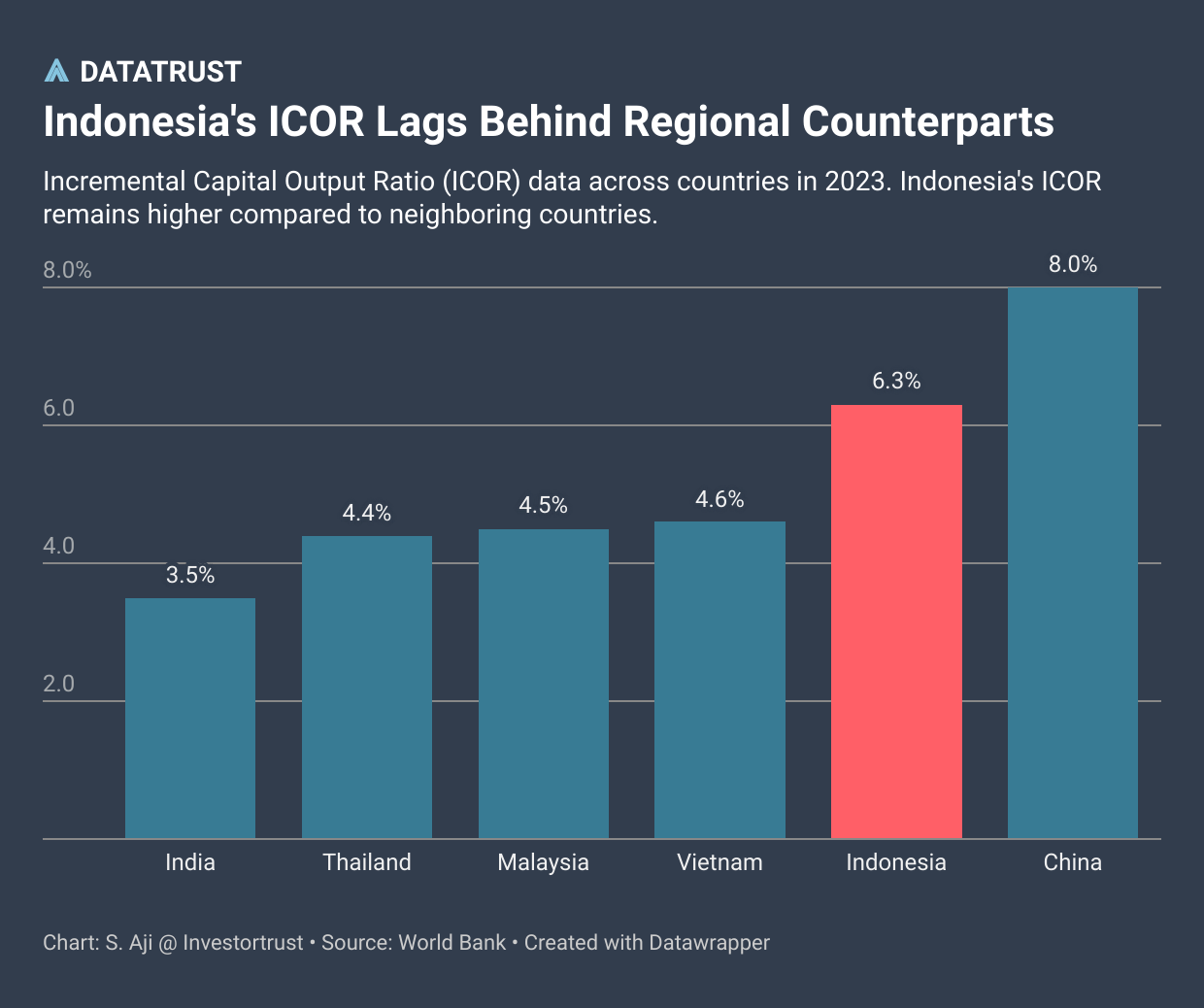Digitizing Public Services: Unlocking Transparency, Inclusivity, and Economic Growth for Entrepreneurs
By Teguh Anantawikrama,
Vice Chairman for Technology and Digital Transformation, Indonesian Chamber of Commerce (KADIN)
INVESTORTRUST.ID - In today’s rapidly evolving digital era, the transformation of public service delivery is no longer a luxury — it is a necessity. For Indonesia to remain competitive, both domestically and globally, digitalization must become the backbone of our governance systems.
As Vice Chairman of KADIN for Technology and Digital Transformation, I have witnessed how these changes have had a profound and tangible impact on entrepreneurs across the archipelago.
As Vice Chairman of KADIN for Technology and Digital Transformation, I have witnessed how these changes have had a profound and tangible impact on entrepreneurs across the archipelago.
Click here to get the latest news
Can Regulatory Stability and Tourism Turn Indonesia into an Investment Haven?
Key Areas Where Digitalization Is Reshaping Public Services
Below, I highlight four key areas where digitalization is reshaping public services and the concrete implications for our business ecosystem:
1. Digital Transparency Strengthens Trust and Reduces Hidden Costs
Digitalization enhances transparency through open access to government data, licensing procedures, procurement systems, and regulatory updates. This shift significantly reduces the bureaucratic maze and minimizes opportunities for unofficial fees or hidden costs.
For entrepreneurs, the impact is clear:
• Licensing processes are faster and more efficient.
• Legal certainty improves as documentation and procedures are traceable and auditable.
• Businesses can plan with greater precision, understanding regulatory timelines more clearly.
This transparency fosters greater trust in public institutions and encourages entrepreneurs to invest and grow with confidence.

Baca Juga
LPS Prepares Insurance Policy Guarantee Rules, Awaiting Green Light from Government
2. Driving Inclusivity and Supporting the Sustainable Development Goals
Digital public services empower small and medium-sized enterprises (SMEs), especially those in rural and remote regions. Tools such as online business licensing, e-commerce platforms, and digital finance services democratize access to economic opportunities.
This leads to several key benefits:
• SMEs can access government aid, financing, training, and new markets more easily.
• Women-led and disability-owned businesses are empowered through inclusive digital systems.
• Information asymmetry between large and small enterprises is reduced, promoting a level playing field.
This inclusivity is not only good economics — it is the foundation of achieving our national commitment to the Sustainable Development Goals (SDGs).
3. Data Security and Technological Investment: A Critical Economic Imperative
While digital transformation offers immense benefits, it also brings serious challenges. Chief among them are data security and the urgent need for investment in critical infrastructure like 5G and the Internet of Things (IoT).

Why this matters for entrepreneurs:
• Weak data protection undermines investor confidence and poses risks to sensitive business information.
• Companies need reliable, high-speed digital infrastructure to optimize operations, logistics, and supply chains.
• Delays in adopting next-generation technologies leave Indonesian businesses at risk of falling behind global competitors.
Protecting data integrity and accelerating digital infrastructure investments are essential steps toward enhancing Indonesia’s economic resilience.
4. Bridging the Integration Gap, Especially in 3T Areas
Despite progress, integration between digital systems across government agencies remains uneven — especially in Indonesia’s frontier, outermost, and least-developed (3T) areas. Fragmented platforms and outdated infrastructure often result in duplication of administrative processes and delayed service delivery.
This poses real obstacles for entrepreneurs:
• Repetitive and inconsistent administrative steps reduce operational efficiency.
• Unreliable services create uncertainty and raise the cost of doing business.
• Investors are hesitant to commit capital to regions where government processes are not streamlined.
To overcome this, Indonesia must prioritize interoperability between government systems and ensure equitable digital infrastructure across all regions.
A National Opportunity We Cannot Miss
Digitalization is more than a technological shift — it is a strategic enabler of trust, inclusion, and economic progress. For Indonesia’s entrepreneurs, the digital transformation of public services is opening new pathways to growth, innovation, and competitiveness.
As policymakers, business leaders, and civil society, we must work hand in hand to ensure that no region or business is left behind. Let us accelerate this transformation — with integrity, inclusivity, and national unity as our guiding principles.
For further dialogue on digital innovation and public-private collaboration, I welcome continued engagement with all stakeholders in Indonesia’s digital economy. ***

